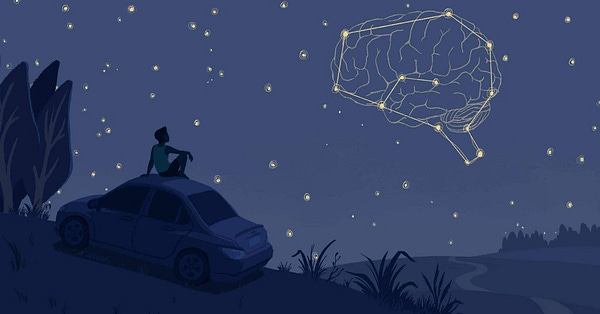Serena Williams is one of the best athletes of our time. She’s broken records, won numerous Olympic gold medals, and has seven Wimbledon championships under her belt. She also happens to be a bit superstitious.
“I have to use the same shower, I have to use the same sandals, I have to travel with the same bags,” she once said in an interview, describing her pre-game rituals as annoying but necessary. “I bounce the ball five times before my first serve and twice on the second.” In the rare case that she loses a game, Williams jokes that it’s not because she didn’t play well, but because she didn’t perform her rituals correctly.
She might be on to something. Researchers have found that rituals can help us feel less anxious – and, as this 2017 study suggests, perhaps even improve our performance.
In the study, researchers asked volunteers to perform a task after completing a ritual, and then to perform the same task without first completing the ritual. They also measured the volunteers’ brain activity. Turns out, task performance was better when they performed the ritual, and the volunteers were also less anxious after doing so. “Generally, the findings are consistent with the longstanding view that ritual buffers against uncertainty and anxiety,” the study concluded.
Sound familiar? During the pandemic, you’ve probably relied on your own set of rituals. Maybe it’s cracking a single hard-boiled egg at breakfast. Or doing yoga every day at noon. Maybe it’s a daily walk in your neighborhood. These small, mundane activities often come with a much larger purpose — they offer a sense of control.
Social psychologist Azim Shariff has looked at rituals in another context, examining their purpose for religious communities. He has studied religious rituals such as fasting and long pilgrimages, and how they serve as a signal to fellow believers. “You are showing, in a costly way, indications that you're a believer. It’s a hard-to-fake signal,” Shariff says. “If you weren't a true believer, you wouldn't go through all that effort.” Shariff’s hypothesis is that these costly religious signals helped to create the structure that allowed early civilizations to grow and prosper.
Over time, as our societies have grown and changed, some of our religious rituals have been replaced by other rule-enforcing structures, such as government institutions and the rule of law. Yet other religious rituals have remained constant across the centuries. The ones that have been preserved exist because they serve a useful purpose. “They allow groups to cohere around each other,” Shariff says.
ON THE PODCAST
February 22: If you’ve taken part in a religious service, have you ever stopped to think about how it all came to be? How did people become believers? Where did the rituals come from? And what purpose does it all serve? This week, we bring you a favorite 2018 episode with social psychologist Azim Shariff. He argues that we should consider religion from a Darwinian perspective, as an innovation that helped human societies to thrive and flourish.
February 25: We often hear from listeners who tell us that Hidden Brain has influenced their lives in positive ways. Today, we bring you a bonus episode about one listener story that particularly moved us. It’s a tale about two friends, and a decision that changed both of their lives.
March 1: How is it some social movements take off and spread, while others find themselves stuck? Why do some companies soar and become household names, while others flame out? Can you predict success and failure in advance, or is it all a matter of luck? In this episode, we look at how movements spread – and how social contagion can be harnessed to build a better world.
FROM THE TWITTERATI





STAFF RECS
“George Saunders has a new book called, A Swim in a Pond in the Rain: In Which Four Russians Give a Master Class on Writing, Reading, and Life. I had to read the first chapter, which is about the Chekhov story ‘In the Cart,’ for the second time this morning. SO GOOD.” – Brigid McCarthy
“How can public health officials get more people to embrace COVID-19 vaccines? This study found that communications that reminded individuals a flu shot was ‘waiting’ or ‘reserved’ for them boosted vaccination rates by up to 11%.” – Tara Boyle
“A thoughtful interview with Harvard astronomer Avi Loeb, who says we need to be open to the idea that a strange, interstellar object spotted in 2017 is evidence of technology from a distant world.” – Laura Kwerel
FOR THE SUPERFANS
Over the years, we’ve heard from so many listeners who want to support our show. And we’re excited to share that we now have a Patreon page where you can do just that! Your support is the fuel that allows us to create more Hidden Brain -- more podcasts, more radio shows, and more new projects like this newsletter. We’re so grateful for your interest in our work and the ideas that we explore on the show.





